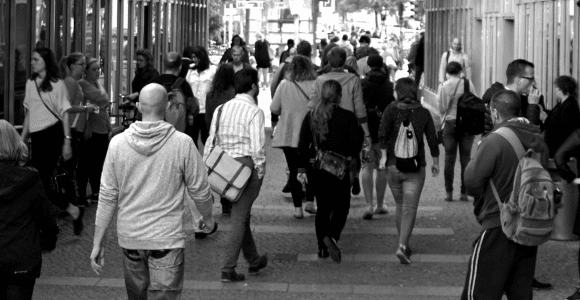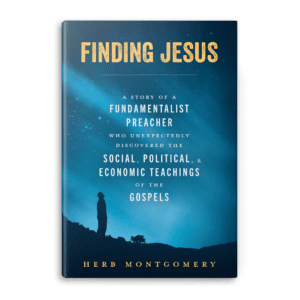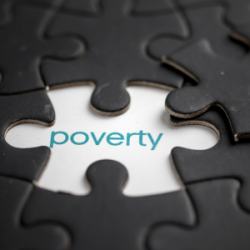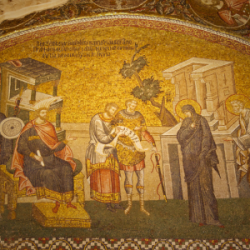
For Jesus followers today, this holds meaning for our justice work. We work to create a new world of mutual aid, resource-sharing, and a just wealth redistribution in the face of a world where a few have so much while too many don’t even have what they need to survive. As Jesus followers, we have to ask ourselves: does our programming of independence and being self-sufficient come from our American culture? Does it conflict with the teaching of Jesus? Does it even conflict with how our world really functions? We are dependent on each other whether we are willing to admit that or not. And rather than developing stalwart, privatized systems of self-sufficiency, we should work toward building community where each person is taken care of, where we take responsibility for ensuring each person has what they need to thrive.
Welcome Readers! Please subscribe to Social Jesus Here.
(Read this series from the beginning at Part 1 and Part 2.)
I want to continue with Patterson’s words, because I think they are extremely relevant here:
“This warrants pause. Food for care. In the ancient world, those who lived on the margins of peasant life were never far from death’s door. In the struggle to survive, food was their friend and sickness their enemy. Each day subsistence peasants earn enough to eat for a day. Each day they awaken with the question: Will I earn enough to eat today? This is quickly followed by a second: Will I get sick today? If I get sick, I won’t eat, and if I don’t eat, I’ll get sicker. With each passing day the spiral of starvation and sickness becomes deeper and deeper and finally, deadly. Crossan has argued that this little snippet of ancient tradition is critical to understanding why the followers of Jesus and their empire of God were compelling to the marginalized peasants who were drawn to it. ‘Eat what is set before you and care for the sick.’ Here is the beginning of a program of shared resources of the most basic sort: food and care. It’s an exchange. If some have food, all will eat; if any get sick, someone who eats will be there to care for them. The empire of God was a way to survive—which is to say, salvation.” (pp. 74-75)
Years ago now I read a passage from historical Jesus scholar James Robinson that caused me to question whether I was preaching a gospel about Jesus or teaching the same gospel that Jesus himself taught:
“[Jesus’s] basic issue, still basic today, is that most people have solved the human dilemma for themselves at the expense of everyone else, putting them down so as to stay afloat themselves. This vicious, antisocial way of coping with the necessities of life only escalates the dilemma for the rest of society . . . I am hungry because you hoard food. You are cold because I hoard clothing. Our dilemma is that we all hoard supplies in our backpacks and put our trust in our wallets! Such ‘security’ should be replaced by God reigning, which means both what I trust God to do (to activate you to share food with me) and what I hear God telling me to do (to share clothes with you). We should not carry money while bypassing the poor or wear a backpack with extra clothes and food while ignoring the cold and hungry lying in the gutter. This is why the beggars, the hungry, the depressed are fortunate: God, that is, those in whom God rules, those who hearken to God, will care for them. The needy are called upon to trust that God’s reigning is there for them (“Theirs is the kingdom of God”) . . . Jesus’ message was simple, for he wanted to cut straight through to the point: trust God to look out for you by providing people who will care for you, and listen to him when he calls on you to provide for them.” (James M. Robinson, The Gospel of Jesus)
I know this flies in the face of much of how we are enculturated to live in our economic environment today. We learn early on that survival depends on competition instead of cooperation. That there is scarcity rather than enough for everyone. We are taught over time to hoard what we need rather than share with others who have needs. And this ultimately leads to us appealing to violence to protect our hoarded resources rather than a generosity that sees us rising or falling all together. Jesus’ early disciples were instructed to follow a practice of dependence and not lose sight of it. Our survival both economically and ecologically today is vitally connected to us embracing our dependence on one another. This week’s reading calls Jesus followers to take this to heart and let it inform how we live.
 Herb’s new book, Finding Jesus: A story of a fundamentalist preacher who unexpectedly discovered the social, political, and economic teachings of the Gospels, is now available at Renewed Heart Ministries.
Herb’s new book, Finding Jesus: A story of a fundamentalist preacher who unexpectedly discovered the social, political, and economic teachings of the Gospels, is now available at Renewed Heart Ministries.














